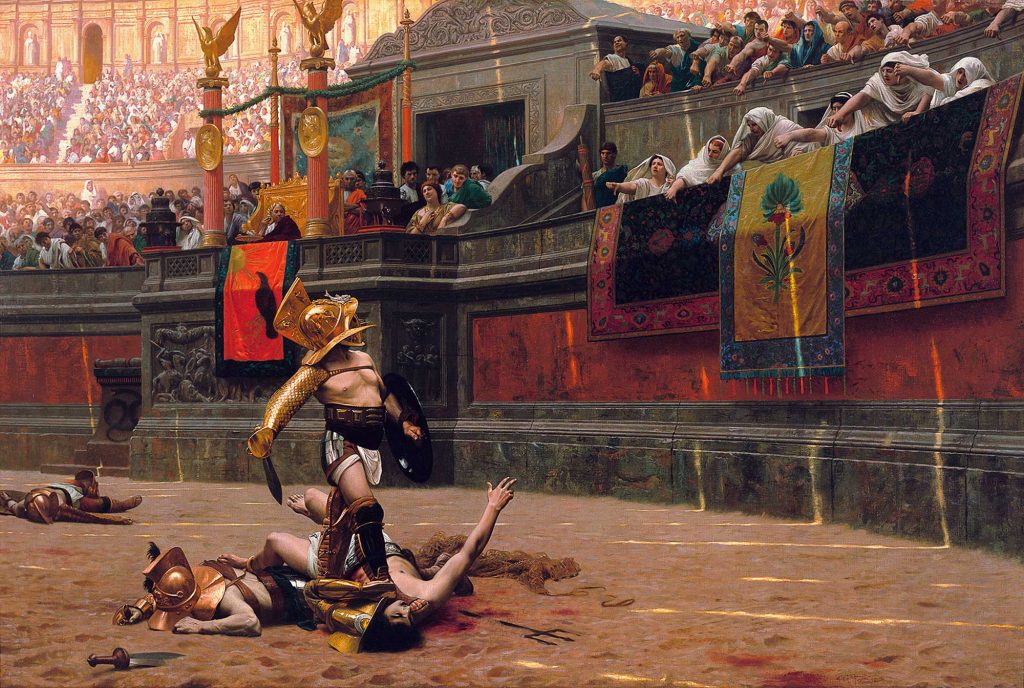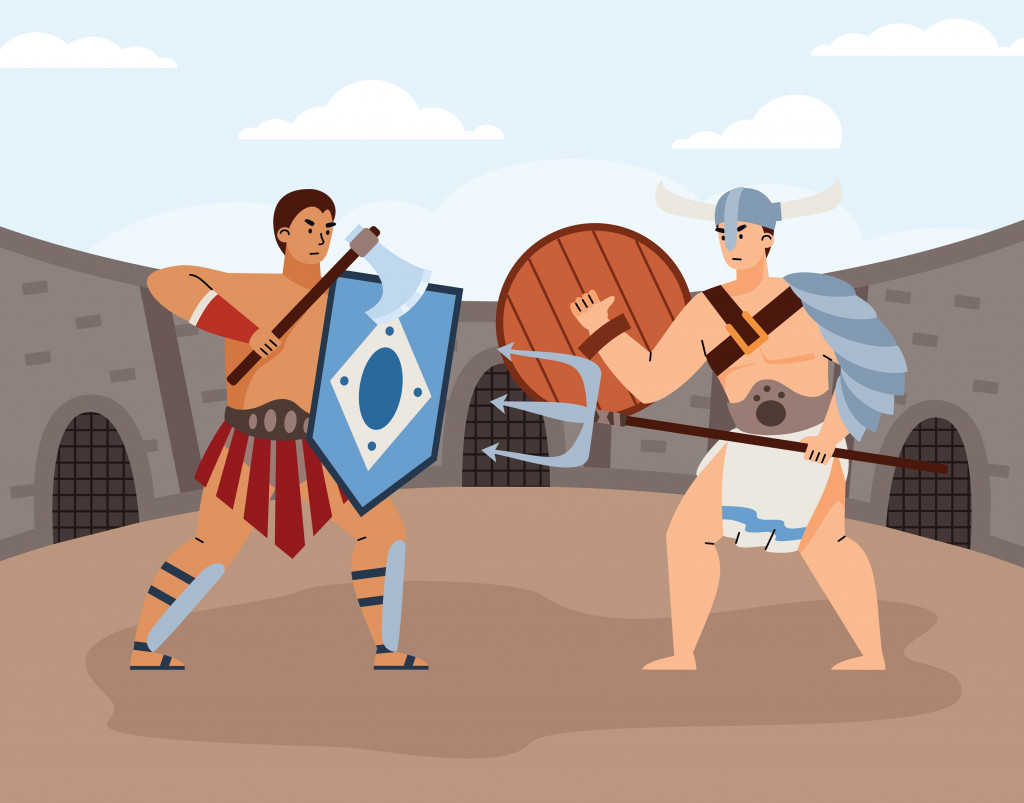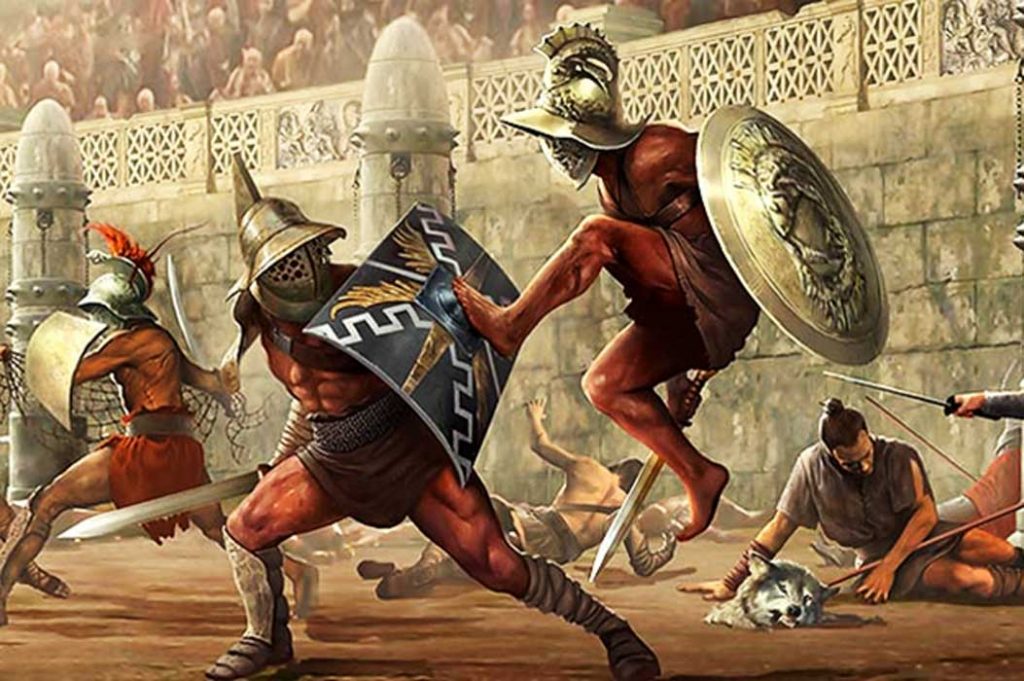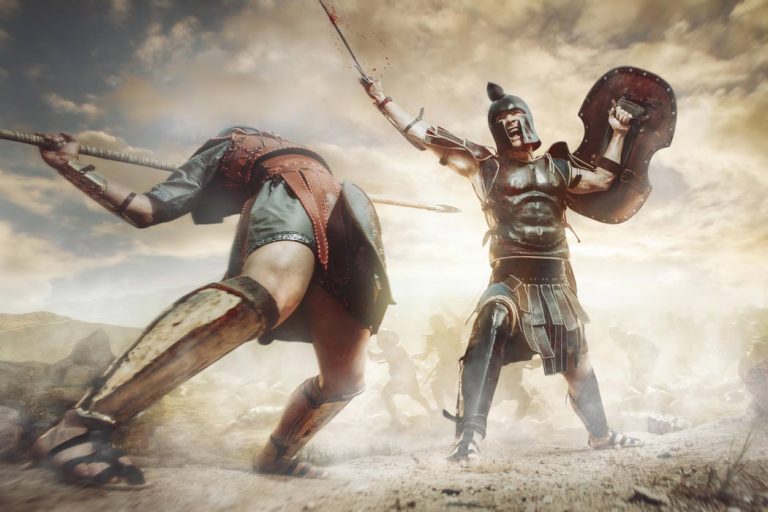Romans tolerated and/or appreciated violent sports for many of the same reasons that we do now. Due to the game’s regulations, as well as Roman society and beliefs at the time, gladiatorial combats frequently resulted in death.
As long as human civilization has documented history, there has been a dichotomy between violence and pleasure. The undercurrent of violence has persisted throughout history, from the primordial era and Roman gladiatorial contests to modern video games and wrestling competitions. It is understandable why Squid Game became the most viewed Netflix program of 2021. Squid Game was created on the same macabre fascination as the Roman blood sport and depicts death as a penalty for losing.
The splendour and size of the ancient gladiatorial games are what make them so appealing. The Colosseum, a magnificent amphitheatre constructed by the Romans, served as the venue for this infamous blood sport. The Colosseum, where more than 60,000 people would see a person kill or be killed, was the Romans’ go-to place to pass the time when they were feeling bored.
But why were the Romans fascinated with death?

What were the gladiatorial games?
The gladiatorial games were a bloody Roman spectator sport that took place in an arena. In the arena, professionally trained gladiators would engage in death-defying combat!
The games were first played as a funeral rite to accompany fighting spirits as they left this world. Given that the blood offering was thought to appease the spirits of the deceased, this explains why the game ended in death. But as time went on, it developed a political undertone and quickly turned into a method to honour the living rather than the dead.
320 pairs of gladiators competed in the gladiatorial games that Julius Caesar held to mourn his father’s passing. When his daughter Julia died during childbirth, he again showed off his dominance by holding additional matches and even ordering the deaths of his own troops in the arena.

The Games quickly changed into a show of dominance for Roman rulers. The slitting of the dead gladiators’ necks was a command given by Emperor Claudius. He was interested in watching the final expressions on their faces.
For a gladiator, winning in the arena was both a matter of great prestige and a source of substantial income.
Who were the gladiators?
Gladiators were trained fighters who battled to the death in the arena against other gladiators and even strange animals. Some warriors honoured the gods in memory of their fallen comrades. Later, as a type of public execution, prisoners of war, slaves, and criminals were forced to take part in the blood sport—win, and you get to live.
Gladiators included even free men, ex-soldiers, misfits from society, and even women. Rome saw a display of royal combat in the arena.
Gladiators weren’t just limited to humans. In the arena, exotic animals were sometimes more well-liked than regular males.

Some combatants were drawn to the sport by fame and affluent support. A valuable benefit would be three meals each day and access to healthcare.
But why would a trained gladiator want to pass away in this manner? Romans had a keen sense of mortality. They were taught not to dread death and to place importance on selecting how they would pass away. Due to the high mortality rate in ancient Rome, dying as a gladiator was a lot more desirable than dying of starvation or illness. It was regarded as a win-win situation for both the high and lower classes since winning in battle was a matter of immense social prestige.
How was death entertaining to the audience?
Both the cultural elite and the general populace found entertainment in watching gladiators sacrifice their lives in the most gruesome ways. Why? Romans had no concern for outsiders’ lives. They were hardly regarded as human beings because the majority of the fighters were either convicts or criminals.
According to historians, Roman blood sports promoted comradery among the populace. The gruesome deaths would also serve to terrorize the populace and serve as a reminder not to disobey the Emperor. It also allowed the audience some control because they could decide whether or not to save the life of the defeated gladiator by indicating with their thumbs.
Bringing exotic animals from many continents also provided crowds with entertainment.
Research suggests that watching sports can be therapeutic. The spectators get an adrenaline surge in addition to the athletes. Individual fan identification with an athlete or team is common. Being a part of a more enthusiastic group intensifies the feeling. The emotional arousal of the audience has an impact on whether athletes win or lose in the arena, a phenomenon that is still present today.

Both upper and lower-class Romans were interested in participating in blood sports. It served as a method of arousing terror and concentrating power for the higher classes. Although they were at the bottom of the social scale, the lower classes believed that they were at least better than the criminals who were being slain for entertainment. The peculiar event of the Roman gladiatorial games drew together people from all socioeconomic groups, producing an odd sense of nationalism.
Why did Romans enjoy such violent games?

Numerous Roman emperors have a violent side. In order to kill or destroy rival gladiators, the emperor Caligula would send them into the combat arena. Emperor Commodus, who had formerly been a gladiator, chained those who had lost their legs together in the arena, creating a massive serpentine representation of their bodies, and then shot them for amusement.
For Roman emperors, staging a gladiatorial contest was a display of wealth and opulence. 5,000 wild animals were brought in by Titus to be slaughtered on the Colosseum’s opening day in 80 AD. Titus would also organize comedic duels between respectable homebodies who were physically challenged for their own amusement. Twisted, I assume?
A cycle of dominance and submission must be maintained via aggression. All species are capable of displaying aggressive behaviour in order to defend their territory and seize the environment’s few resources. Aggression is acceptable in society as long as it is ritualized.

We can avoid anarchy by following a few predictable norms. Only in accordance with the regulations and only within the arena would a gladiator murder his adversary. Despite how brutal they might be, sports are ritualized aggression.
At least now you are aware of your enjoyment of Squid Game!
If so, don’t forget to post your thoughts in the comment section while sharing this article.
Stay connected with Buzzer.lk and Buzzer History to find out more of this kind of exciting information.




